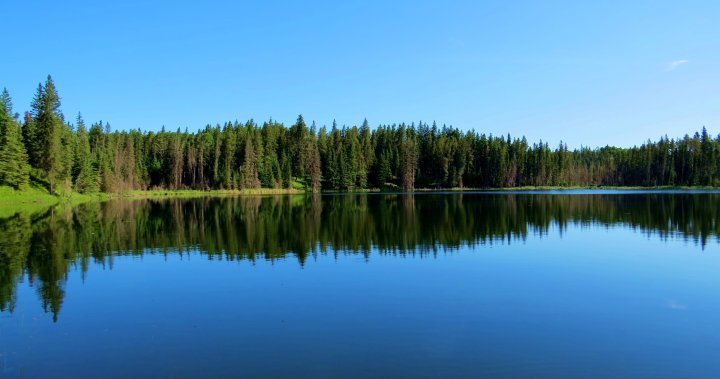A new memorandum of understanding was signed in the Swan River Valley, changing how forestry operates in the region. Indigenous leaders, such as Chief Elwood Zastre and Chief Derek Nepinak, have raised concerns about Louisiana-Pacific’s clear-cutting practices in the Duck Mountains without a proper forest management plan. These areas are crucial to Indigenous practices and culture, serving as a heartland where people learn their language and gather resources. Under the new agreement, Minegoziibe Anishinaabe First Nation, Wuskwi Sipihk First Nation, and Sapotaweyak Cree Nation will work with Manitoba to develop a new forest management plan. This plan will include revenue sharing and penalties for non-compliance by Louisiana-Pacific.
In an email statement, Louisiana-Pacific expressed its commitment to partnering with the province and First Nations communities. Premier Wab Kinew emphasized that the agreement does not aim to remove the corporation but change its approach to forestry. Previously, First Nations individuals were turned away from hunting in the area by LP staff and conservation officers. The new agreement will require LP to allow Indigenous hunting practices in the region, emphasizing the need for reconciliation between the forestry industry and Indigenous communities. The agreement will last for 25 years, with a five-year initial phase to develop a 20-year plan for the future of the forest and operations in Minitonas.
The new agreement reflects a shift towards a more collaborative and respectful relationship between the government, forestry industry, and Indigenous communities. Premier Kinew highlighted the importance of finding common ground for all parties involved and creating opportunities for reconciliation. The agreement will include various stages, working towards protecting First Nations treaty rights and ensuring sustainable forestry practices in the region. Immediate measures are already being put in place to safeguard Indigenous rights and culture while planning for the long-term future of forestry in the Swan River Valley.
Overall, the signing of the memorandum of understanding represents a significant step towards addressing Indigenous concerns about forestry practices in the Swan River Valley. By working together, the government, forestry industry, and Indigenous communities aim to develop a more sustainable and mutually beneficial approach to forest management. The agreement emphasizes the need for cooperation, respect, and reconciliation between all parties involved, setting a new standard for future relationships in the region. As the agreement is implemented over the next 25 years, it is expected to lead to positive changes in forestry practices, revenue sharing, and protection of Indigenous rights in the area.

